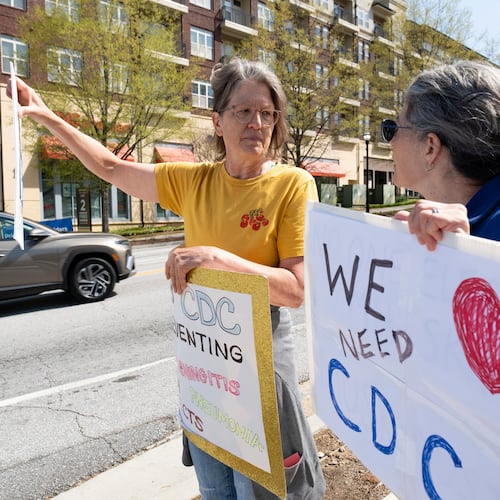Fayette County students will start classes this academic year a week later than planned and offer in-person as well as virtual instruction.
The board of education for the south metro Atlanta community on Monday pushed back opening day for the new 2020-2021 school year to Aug. 17. The change is designed to give teachers more time for professional development courses, especially on how to operate a virtual classroom.
The school system will offer a hybrid plan for going back to school.
Those who want to avoid school buildings because of concerns over the coronavirus can attend an all-day virtual program.
In-person instruction will be available for others who prefer a return to brick-and-mortar buildings, the district said. Children from kindergarten to the second grade will go to school five days a week if their parents choose in-person instruction.
Those in the third- through 12th grades will go to classes on an “A-B” schedule, where students will alternate days that they are educated in school buildings. Half will go two days a week and the other half will go the other two days. Class will be taught for the entire student body on Fridays with the exception of youngsters in kindergarten through second grade.
“This is not a plan that has been built in isolation,” Superintendent Joseph “Jody” Barrow said Monday. “We’ve had a lot of input, a lot of feedback from community and staff.”
Fayette’s plan bucks opening strategies for most school systems in metro Atlanta, which will start the new academic year with virtual instruction for all students because of surging cases of COVID-19 in Georgia. Most metro schools also pushed back the first day of class to give teachers and staff more time to prepare for virtual instruction.
Fayette leaders said their hybrid plan aligns with the wishes of residents who participated in surveys on how to reopen schools. The youngest students will go back all day because they are less vulnerable to the coronavirus, Barrow said.
Face masks will be required for all -- students and faculty, Barrow said. Those who object to their use will be offered positions in the virtual program.
“We have to start somewhere,” Barrow said. “This gives us a foot, a toe in the water. We’ll obviously be watching the data.”
About the Author
The Latest
Featured
